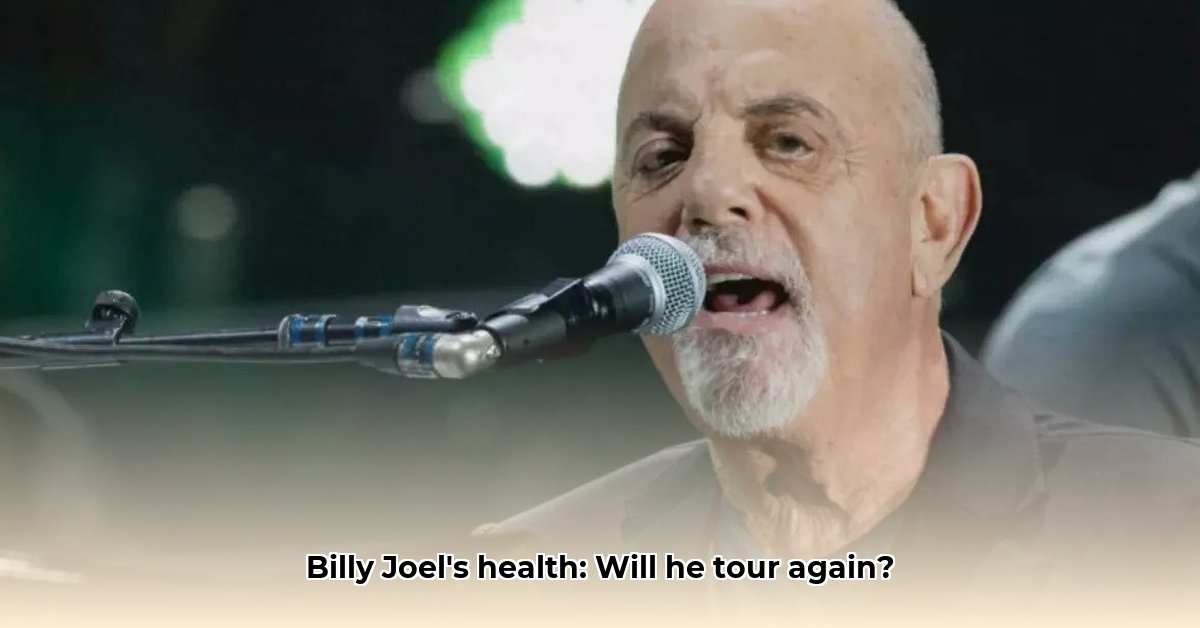
A Legend's Journey: From Piano Man to a New Kind of Performance
The recent news of Billy Joel's health challenges – a diagnosis of normal pressure hydrocephalus (NPH) – has cast a shadow over the music world. This isn't just a story about a cancelled tour; it's a poignant reflection on the resilience of a musical icon, the demands of a long career, and the broader realities facing ageing artists. This article explores Billy Joel's incredible journey, from his rise to fame to his current health crisis, and considers its implications for his future and the music industry at large.
Does this mean the end of live performances for the Piano Man? The answer, unfortunately, remains uncertain. But what is clear is the profound impact of this news, not just on Joel himself, but on his fans and the music industry's understanding of the challenges facing ageing musicians.
A Legacy Forged in Song: The Unstoppable Rise of Billy Joel
For decades, Billy Joel has been synonymous with masterful songwriting and electrifying live performances. His 160 million record sales speak volumes, not just about commercial success, but about a deep and enduring connection with millions of fans worldwide. The numbers themselves tell a powerful story: he's a Rock and Roll Hall of Famer, a Songwriters Hall of Fame inductee – a testament to his unparalleled contributions to music. This isn’t just about hits; it's about creating a body of work that resonates across generations, a musical legacy etched permanently into the soundscape of popular culture. But this impressive career is now facing an unforeseen and deeply personal challenge.
NPH: The Silent Intruder
The diagnosis of NPH, while treatable, is significantly impacting Joel's daily life and ability to perform. This condition, a build-up of fluid in the brain, affects balance, coordination, vision, and even hearing – all crucial components of his renowned live performances. It's not a quick fix; recovery involves a demanding regimen of physical therapy, with the uncertainties ahead weighing heavily. The journey back to full health is a marathon, not a sprint. The immediate consequence, the stark reality of his recent tour cancellations, underlines how this condition has disrupted his life's work.
Beyond Cancelled Concerts: A Wider Perspective on Ageing Artists
Billy Joel's struggle shines a light on the often-unseen challenges faced by ageing musicians. The relentless pace of touring, the physical demands of live performances, the constant travel – these contribute to a significant cumulative toll. Cancellations aren't simply about lost income; they represent a very real and profound physical and mental exhaustion, a harsh reality that many artists face in silence. But this is more than a personal struggle; it raises critical questions about the resources and support systems available to those who have dedicated their lives to enriching our cultural landscape. Are we, as a society and as an industry, providing the necessary support for these musicians as they age and face health challenges?
The Future: An Uncertain Melody
The long-term outlook for Joel’s recovery remains unclear. While physicians express cautious optimism, the course of his recovery is undeniably uncertain. Will he ever return to the same level of energetic stage performances? Or will this challenge necessitate a creative pivot, perhaps to songwriting, composing, or other avenues that might adapt to his changed circumstances? His legacy is secure, but his future, like any of us, is open to many possibilities.
Charting a Course: Navigating the Uncertain Path Forward
The path ahead requires a multifaceted approach, a collaborative effort on many fronts:
- For Billy Joel: Prioritising his health is paramount. Intensive physical therapy remains essential, and exploring alternative creative outlets could offer new purpose and fulfilment.
- For Fans: Continuing to celebrate his extraordinary body of work and offering unwavering support during this difficult phase is vital. This is a time for empathy, appreciation, and unwavering support for an artist who has given so much.
- For Columbia Records: A sensitive and transparent approach to public relations plays a vital role. Celebrating his vast musical legacy through archiving, unique projects, and careful communications will help preserve his contributions to the musical world.
- For the Music Industry: Learning from this experience is vital. The industry needs to consider improvements to artist support systems, particularly addressing the health and well-being of its ageing performers. The future might even see the rise of support structures specifically created for this cohort.
The Long-Term Impact: Will the Piano Man Return?
The core question remains: how will NPH impact Billy Joel's career long-term? The severity of his symptoms, his response to therapy, and the natural progression of his age will all play significant roles in defining his future performance capabilities. While complete recovery isn't guaranteed, the focus now is on carefully managed progress and the exploration of new creative paths. While the prospect of him returning to large-scale stadium shows might remain uncertain, smaller, more intimate performances might be a more manageable approach, allowing for creativity to continue blossoming. Ultimately, his recovery will shape his musical future.
Key Takeaways:
- Billy Joel's NPH diagnosis presents substantial, though treatable, challenges to his performance abilities.
- The timeline for his return to live performance is uncertain, demanding patience and understanding.
- His situation highlights the need for improved support structures within the music industry for ageing artists.
- The focus should remain on Joel's health and well-being, allowing for creative adaptation and a future defined by his resilience.